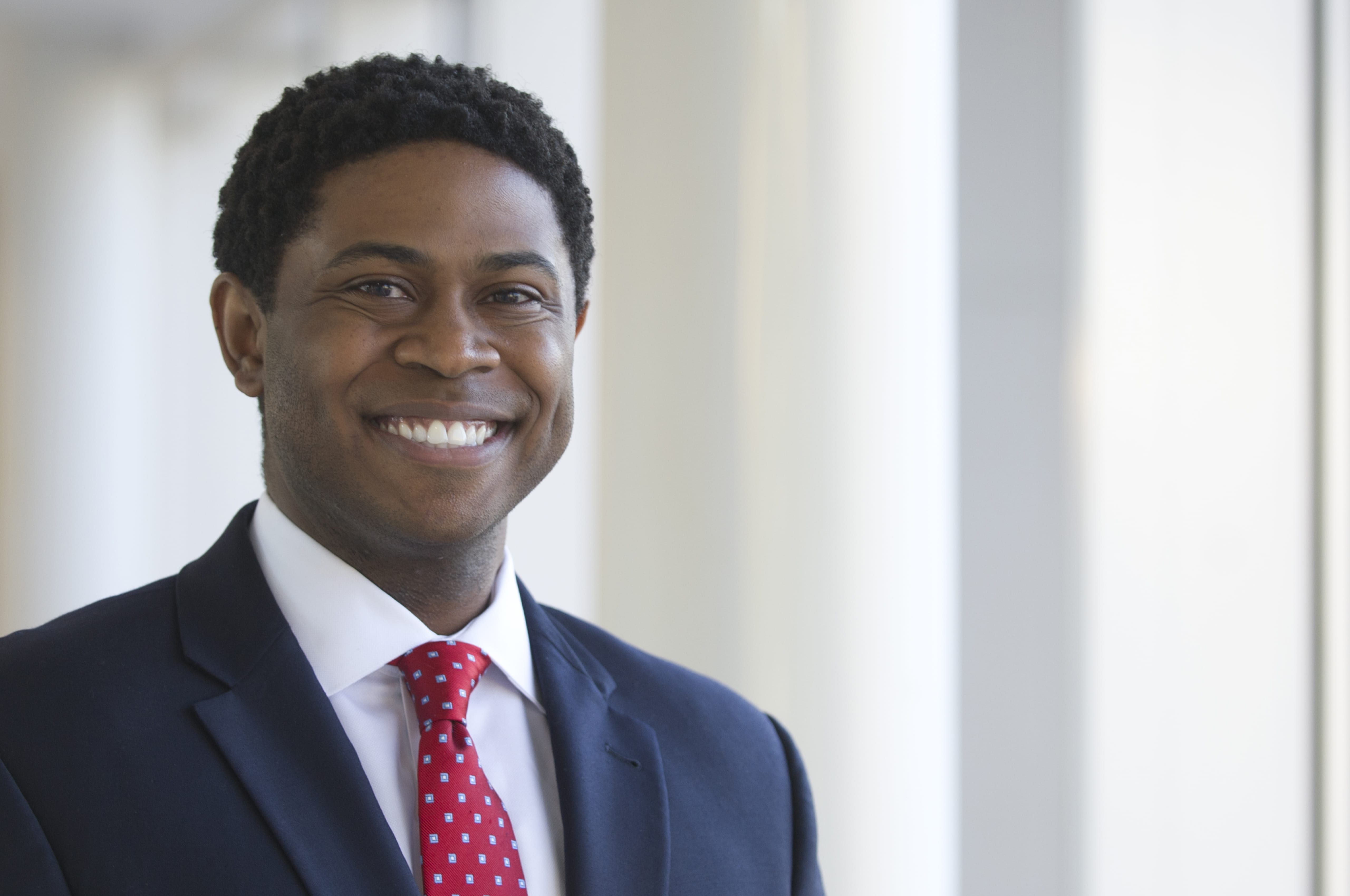
SPEA assistant professor Cullen Merritt’s devotion to teaching began when he was just a child.
“My teachers would let me take extra assignments home,” he recalls. “I would make my little brother do them and then grade his work for fun. When my brother realized he didn’t have to do the assignments, he refused. I was so upset because I thought he didn’t want to learn.”
Despite his early commitment to educating others, Merritt’s sights were set on a law degree. Yet as he pursued that plan, he says his love for teaching began to resurface.
“If you reflect back and identify what you were interested in as a child, that’s perhaps what you should be doing,” he says.
His devotion to education and students earned him this year’s IU Trustees’ Teaching Award. The annual award recognizes a faculty member’s positive impact on learning.
“I was extremely honored because I know SPEA takes the award very seriously,” he says. “Our faculty members are meticulous and committed educators. To be selected from among so many deserving candidates is truly humbling.”
In his work with SPEA, Merritt’s efforts focus on organizational management, leadership, and governance. And he has a clear vision of his role as an educator.
“Intellect must meet empowerment,” he says. “If I’m only providing students with a foundation for intellectual knowledge, but not simultaneously empowering them to apply that knowledge, then I’m not doing my job.”
It’s that mission that drives Merritt to connect with his students and research assistants.
“When people are passionate, it’s magnetic,” says Deirdre Kelley, a civic leadership major and one of Merritt’s research assistants. “He’s passionate about research and improving public management. That draws others to be passionate about it as well.”

Merritt’s passion is evident to students. They credit him with encouraging a genuine dialogue and exchange of ideas in his classes.
“Dr. Merritt’s commitment to student success, his passion for teaching, and his efforts to ensure all students’ voices are heard and welcome is unmistakable,” says Tanjimul Alam, a former student who earned his BSPA in Sustainable Management and Policy in May.
Much of that, Merritt says, is thanks to his own professors who didn’t view teaching as a job, but rather a chance for them to help others. He also credits those professors with serving as role models for him on how to mentor students.
“I don’t view teaching or mentoring as an obligation, I view it as an opportunity,” he says. “I want to help my students learn, and I need to learn from them as well. Even though I may be effective at teaching, I can always improve.”
Merritt’s high expectations serve as a training ground of sorts for his students. Many say that’s where they learned skills that will last throughout their academic, personal, and professional lives. Kelsie Stingham-Marquis, a Master of Public Affairs grad student at SPEA, points to professional learnings she gained in Merritt’s class that will assist in her career for years to come.
“Dr. Merritt has encouraged me in developing a professional persona that reflects my personality and what makes me unique, and not to shy away from leadership opportunities,” Stingham-Marquis adds.
Merritt recognizes that part of his calling is to prepare his students to become successful leaders and agents of change. He views each class, each mentor-mentee partnership, each research project as an opportunity to open doors for students.
“While a research project is ultimately on my shoulders, my research assistants are often co-authors,” Merritt says. “They are working on these projects as someone who has a significant stake in the outcome.”

Morgan Farnworth, one of Merritt’s former graduate research assistant, says collaborating with him is what sold her on joining SPEA IUPUI’s Master of Public Affairs program. She is reaping the rewards of those collaborations, moving on to Merritt’s alma mater—the University of Kansas—to pursue her Ph.D. in public administration. She’ll have at least three publications to her name when she begins. She also hopes to eventually follow a path similar to his and become a tenure-track professor.
“Dr. Merritt truly believes in the three prongs of being a faculty member,” she says. “He believes that research, teaching, and service are all equally important. He has been an excellent role model of what the integration of those three prongs look like in practice.”
Meanwhile, Kelley will begin her junior year at IUPUI in the fall. She first published a paper with Merritt when she was just a freshman. That publication is now the most-viewed article on the Journal of Public Affairs Education website. She has already had unique internship opportunities at the Indiana Statehouse and with local nonprofits. Kelley says she plans to take those lessons and work to build public-private partnerships that make Indianapolis a better place to live.
As for Merritt, he knows he is in the right place, doing the work he was called to do: educating and empowering students who can change the world.
“That’s why I enjoy teaching,” he says. “I have the autonomy and freedom to emphasize intellect and empowerment. It’s all about impacting the public good. If we’re not going to do it in SPEA—a public affairs school—then where is it going to get done?”
